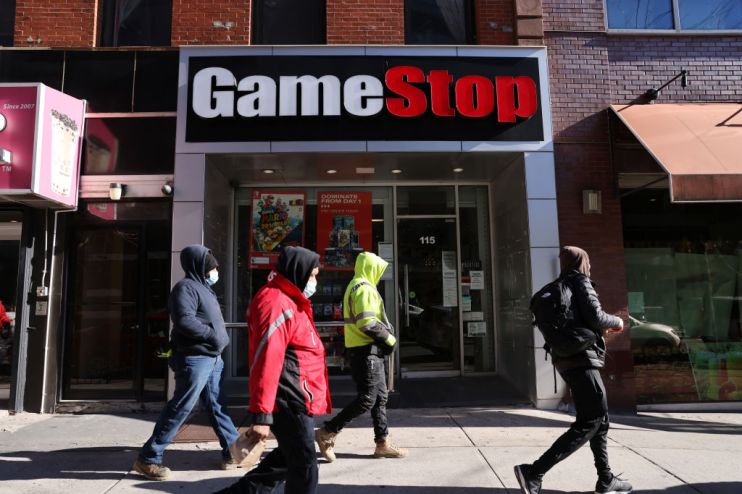GameStop: Get Shorty? The case for short sellers has never been stronger

The meteoric rise of GameStop’s stock – which is seen by professional investors as having a business model appropriate for a bygone age – has been widely celebrated as a kind of “peasants’ revolt” of retail investors against the self-styled “masters of the universe” hedge fund suits.
If sceptical short sellers could be broken on the wheel of a popular buying frenzy, then this would not only be symbolic of a redistribution of wealth, but also power.
Read more: Gamestop Explained: How Reddit investors took on Wall Street hedge funds
While this is a seductive narrative, unfortunately it is deeply flawed. Although the price of any asset can be manipulated in the short-term, ultimately an investment made solely on price momentum requires incremental buyers at ever-higher prices. When inevitably these dry up –with no commensurate improvement in the company’s trading prospects – then the stock will eventually collapse. Caveat Emptor.
Many hedge fund managers – those who offset long positions by selling stock they do not own in the belief it is overvalued – are in fact industry outsiders: a motley crew of ego, studious odd-balls and entrepreneurs.
They often regard the rest of the investment industry as staid career “beta jockeys” – cheerleaders of easy money and parasites of higher asset prices. Short selling in a bull market is not an easy living. Although widely seen as malicious, in fact it only succeeds if an unpalatable truth is discovered.
Short sellers often unmask fraudulent management, as well as exposing poor business models.
Last year, the spectacular collapse of German payments company Wirecard was a direct result of painstaking research carried out by short sellers. In unmasking an astonishingly brazen multi-billion-dollar fraud, some short sellers were even subject to threats to their personal safety and a questioning of their professional reputation. NMC Healthcare in the UK was similarly exposed.
With the rest of the investment industry motivated solely by higher prices, without short sellers, these crimes may have never come to light.
If there are no short sellers to play the role of market vigilante, we would inevitably have a more dishonest stock market. In the absence of shorts, capital would be allocated less efficiently, and economic growth would suffer over the long-term.
This time last year we witnessed the steepest falls in equity markets since 1929. This highlighted the folly of diversification through investment products, which are solely dependent on rising prices.
Without any ability for fund managers to hedge through short selling, fund buyers would be unfairly corralled into equity products reliant on upward market direction for returns.
It is also important to point out that companies do not go bust when their share price falls, but when they run out of cash. However, if a company needs to raise new funds for investment, a higher share price makes this easier.
But the stock market should make capital raising easier for companies with better growth prospects and more difficult for the rest.
If GameStop now takes advantage of its extraordinary share price by selling new shares to fund the opening of even more stores selling video games – when the industry has now moved online, and its existing shops are sparsely populated – would this really be the best use of any investors capital or in the long-term interests of the overall economy?
Read more: Our commitment to Hongkongers shouldn’t stop with the visa programme